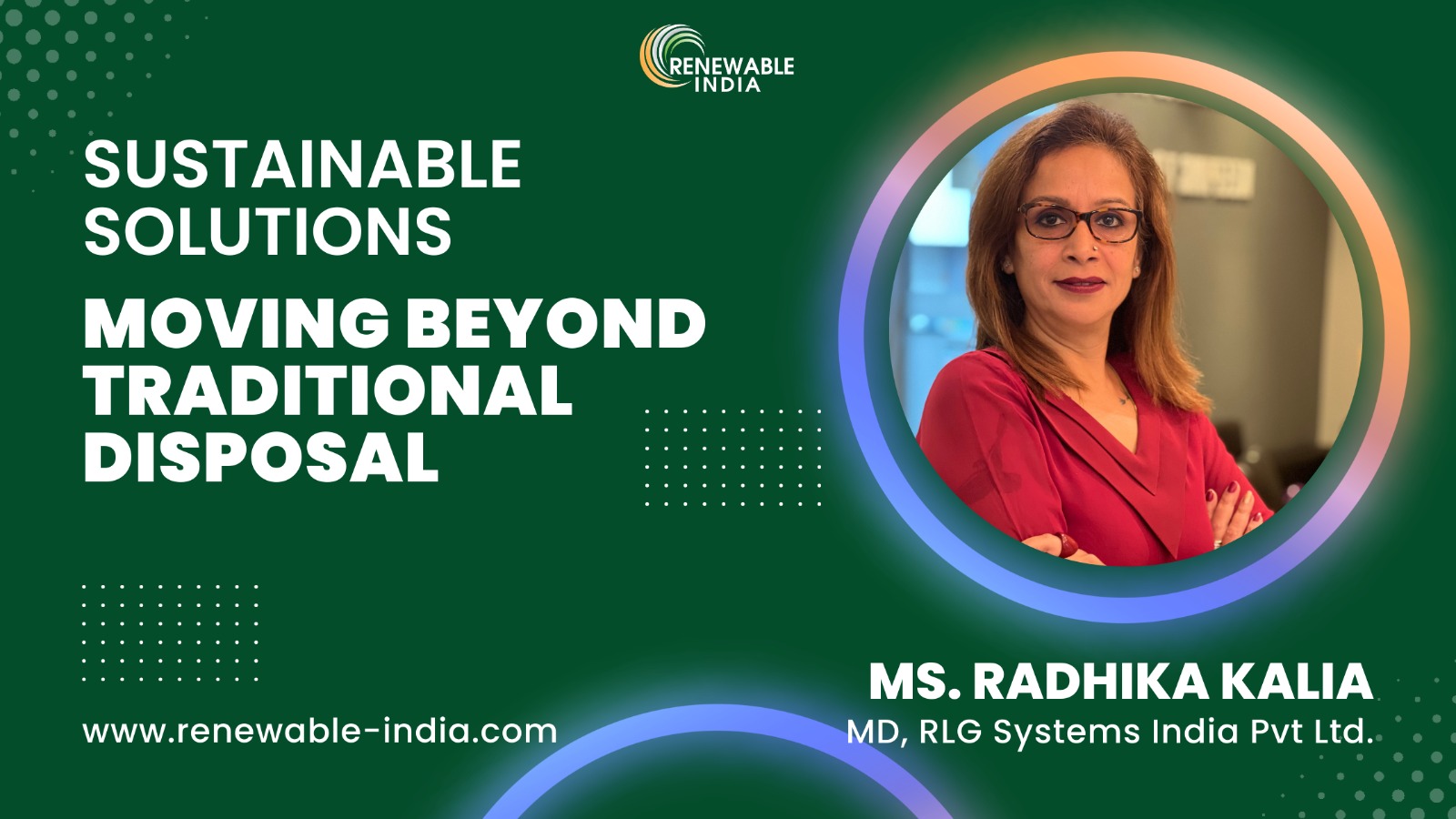
Recent years have seen a significant shift in the global perspective on waste management. While earlier the major sentiment associated with waste was the challenge of disposal, waste management is now increasingly being recognized as a vital component of a sustainable future. Efforts are underway across the globe to explore and implement greener practices, with emphasis on innovative transformations to reshape the industry. The concept of a circular economy forms the core of modern waste management. The approach emphasizes recycling, but more importantly, focuses on maximizing the use of materials by reducing and reusing them for as long as possible. According to some estimates, circular economy practices and a change in the way resources are handled could lead to surplus economic output worth nearly $4.5 trillion by 2030. It must be mentioned here that there are certain drivers pushing the aforementioned shift in perspective and change towards a more sustainable future, including advancements in technology (IoT and AI in particular), global commitment and legislation directed towards reducing waste generation and promoting recycling and reuse, and a sense of responsibility in communities across the globe towards the environment and the planet.
Waste today holds significant strategic and economic value; rather than something to be merely discarded, it is viewed as a reservoir of potential and an importance resource. Advances in recycling technologies have enabled recovery of large amounts of resources. For example, chemical recycling restores plastics to the level of quality comparable to “virgin plastics,” and is being considered a circular solution to plastic waste.
Reliance Industries in 2023 became the first Indian company to use chemically recycled plastic waste-based pyrolysis oil into International Sustainability and Carbon Certification (ISCC)-Plus certified circular polymers. In 2018, BASF launched he ChemCycling™ project. Since 2020, the company and its customers have introduced commercial products using this technology, including pharma containers, transport packaging, and different types of food packaging. TerraCycle has developed innovative capabilities to recycle difficult to recycle materials, such as juice pouches, cigarette butts, and beauty products. Speaking of innovations, researchers at the University of Colorado have developed a technology that produces fibers from sustainably sourced material like gelatin. So, clothing made with this fabric may be worn, and then at will, dissolved and recycled to make new clothes. Companies like Dell, Apple, Fairphone and Enviroserve employ highly sophisticated robotic and AI systems to recover valuable materials conventionally lost in ewaste, reducing the need to repeatedly source these materials from nature and further deplete natural resources.
Many large companies are actively working to transform rubber waste management. For example, Continental’s UltraContact NXT tyre employs more than 60% sustainable materials, including renewable, recycled, and ISCC PLUS mass balance certified components. Michelin is looking to manufacture tyres with recycled and sustainable materials. Bridgestone stresses efficient waste management and energy-efficient processes, eco-friendly tyre-plant design, sustainable energy sources, sustainable supply chain practices, and seeks to partner with companies internationally to recycle end-of-life tyres. Several other companies are engaged in developing innovative solutions related to rubber waste recycling. For example, Rubber Conversion uses advanced technology for rubber devulcanization to produce high quality compounds and recover valuable material from rubber waste. G3C Technologies incorporate processes to convert mixed end-of-life tyre feedstock into gas, oil and high grade recovered carbon black.
Companies like RLG Systems India Pvt. Ltd. are actively trying to transform the waste management landscape in India through initiatives promoting sustainability, responsible waste disposal and environmental responsibility. With particular focus on sustainable supply chain and comprehensive public awareness campaigns, RLG Systems India seeks to enhance recycling and responsible disposal of waste. The company has undertaken several initiatives to raise mass awareness and transform e-waste management practices, Clean to Green™ being their flagship campaign. Its initiatives, while addressing the immediate needs for responsible waste disposal, also contribute to the broader goal of establishing a circular economy in India.
Further, organic waste is increasingly being used to generate biogas and renewable energy and heat sources. Further, wastewater is being treated as a valued resource to recover clean water, energy, nutrients, and other resources.
While it is true that there is a visible transition towards sustainable waste management practices and the domain holds immense potential, several challenges persist that may slow or hinder progress. For example, several advanced technologies like chemical recycling are still in early stages and could be costly. Further, establishing modern recycling facilities warrants significant initial investment, which could be a problem especially for countries with inadequate financial resources. Another challenge is market acceptance of recycled products; recycled products may witness low acceptance as compared to products manufactured using virgin materials.
An important factor to consider here is that regulations and polices, though drafted with sincere intentions, could also be a barrier to sustainable waste management practices. For example, inconsistencies in directives across regions could create problems for global supply chains and hinder the adoption of uniform standards. Also, innovations in recycling technologies are seeing rapid progress, and current regulations have not been able to stay abreast with such developments, which has made introduction and acceptance of novel recycled materials into the market difficult.
Other major challenges include a lack of awareness or motivation among a large section of consumers who don’t participate or contribute to recycling practices or choose products made from recycled materials, intricate combinations of materials present in e-waste which make recovery of materials and recycling difficult, and global inequality in waste management abilities. While developed countries generate larger amounts of waste per capita, such nations usually possess a more robust infrastructure to manage it. Contrarily, financially weaker nations lack the capabilities to effectually manage waste.
Securing a greener future through intelligent and effective waste management warrants joint and sincere efforts across sectors to overcome substantial technological, economic, societal, behavioural and regulatory challenges. However, the realization of innovative and circular practices promises significant benefits pertaining to the dimensions mentioned above, and through consistent effort and undying commitment, a zero-waste future and a healthier planet could be achieved.
Leave a Reply